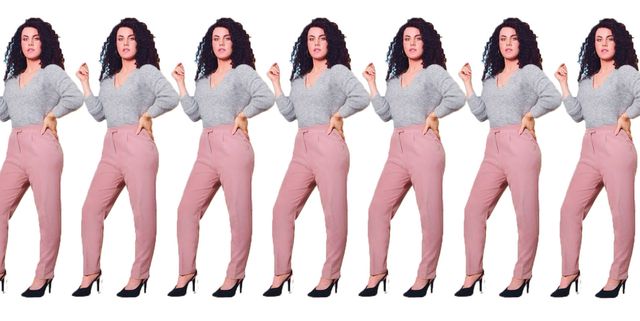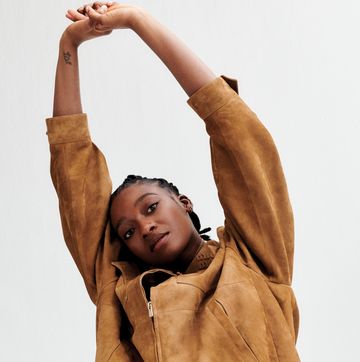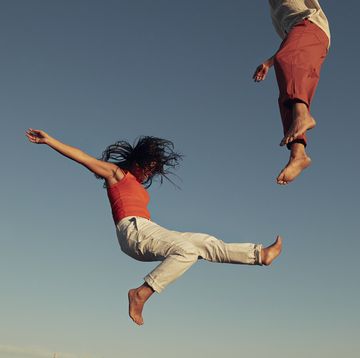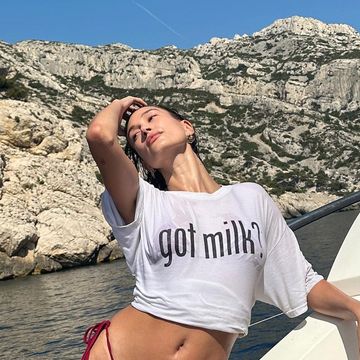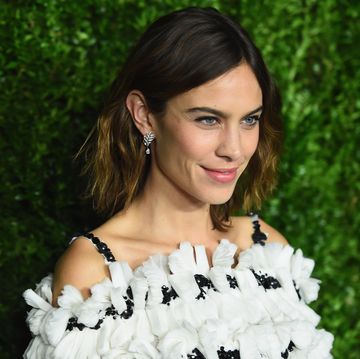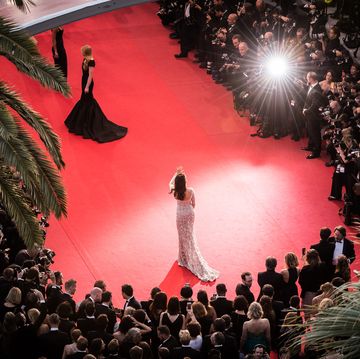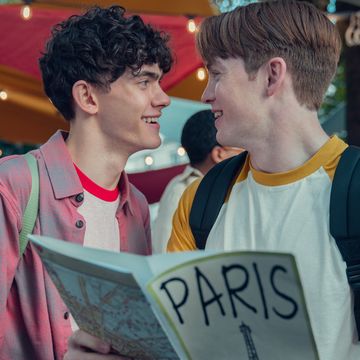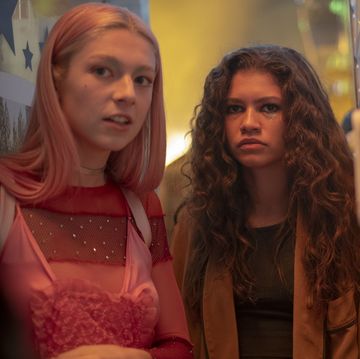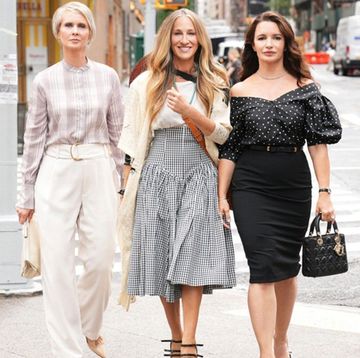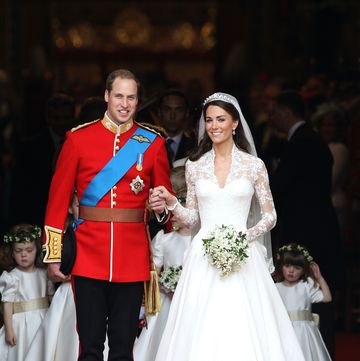This week, which is Trans Awareness week, we said goodbye to our longtime columnist Rhyannon Styles. She has spent the last two years taking us through the journey of her post-transition life as, in her words, a new girl.
In the two years she has been with us, trans visibility has greatly improved, with women such as Laverne Cox and Janet Mock making headlines for all the right reasons, and trans lawmakers like Danica Roem making history.
However, this doesn't mean life as a trans woman or girl is easy.
Last year, the Independent reported that transphobic hate crimes reported to the police had nearly trebled since 2011, with prosecution rates falling.
Robbie de Santos, the head of campaigns at LGBT charity Stonewall said at the time, 'Trans people experience disproportionate levels of hate crime, bullying, abuse, discrimination and day to day harassment, so while these figures are distressing they do not come as a surprise.'
Someone who knows these stats all too well and is doing something about it, is activist and all-round angel Charlie Craggs.
She is the award-winning woman behind Nail Transphobia and she travels around the country doing people's nails, trying to enlighten them about the notion that trans people are just that, people, who deserve respect, love and maybe even a good manicure, just like everyone else.
Not satisfied with her already sisyphean task of showing her humanity to every person in Britain (though, if anyone can, it's her), she also wants to reach every trans woman as they begin to transition and give them a helping hand.
Her book, To My Trans Sisters (£12.99), aims to do just that, with letters from over 70 Trans women, importing their best advice to the reader.
We sat down with the powerhouse to talk about her book, common misconceptions about trans women, and another battle we need to fight, classism.
What would you say to someone who is transitioning without a good support network?
I'd say buy this book, duh! This is literally why I wrote the book, I struggled in the early days of my transition because I didn't know any trans people.
I didn't have a big sister figure to guide me through transition and answer all my questions and give me advice. This book gives you almost 100 sisters until you find your sisters in real life. It's the book I wish I had at the start of my transition.
What do you think are some of the most valuable pieces of advice from the book?
Though there is some amazing practical advice in the book – from punk rock legend Laura Jane Grace's advice about dealing with transphobia, to America's Next Top Model star Isis King's advice about love - this isn't the trans version of The Secret.
The book doesn't contain a formula for a successful transition, because first of all there isn't one, and secondly because you have to make the same mistakes we made to learn the lessons yourself. This book is more about letting you know – while you're going through it and making those mistakes - that you're not alone, we've all been there, we've all made it out the other side, and we've all made it to the top too *snaps finger*.
Having said that, some of the letters taught me a great deal. One letter in particular that really resonated with me and shifted my perspective was Scientist Kate Stone's - she was the first trans woman to speak on the TED main stage.
Her letter about killing (transphobic) people with kindness changed how I deal with bigotry. She speaks about the time she was physically thrown out of a club for using the women's toilets, but went back to the club to give training to all their bouncers to help them understand trans people so that no one else has to go through what she did.
I find it funny because when I read Kate's letter, I realised what a know-it-all little sister I am, thinking I know everything about being trans.
She taught me a lesson that only a big sister can teach a little sister. This showed me that I'd achieved my objective with the book.
This also showed me that the book had actually exceeded my initial objective of being for girls at the start of their transition though, because I'm almost half a decade into my transition now and I still learnt so much from this book.
What are some popular misconceptions and which ones really frustrate you?
All misconceptions frustrate me, but I'm happy to discuss them, this is what my campaign's all about.
I started my campaign, Nail Transphobia, because I realised so many people have misconceptions about trans people, yet often haven't actually met a trans person before, and if they sat down and had a chat with one of us, they'd see we are just normal, pretty nice, people and the misconceptions aren't true.
My pop-up salon is a safe space for education, so I encourage questions, even the wrong questions (i.e. asking about surgery or my old name), because it's my chance to teach the person, in a super friendly way, as their new trans friend, that those questions aren't cute - and they'll go away and won't ask another trans person those questions.
Considering the suicide rate among trans kids, do you think transphobia should ever be given a platform in the media?
They have every right to give a platform to these people, that's their choice, it's a free country, but I just need these journalists, editors, producers and so on to know that if they do, they have blood on their hands, literally.
From the increasing number of trans murders globally, to the rising number of trans hate crimes here in the UK, to the 48 per cent of trans people that attempt suicide in their lifetimes. You are the reason why.
Feminism is arguably becoming less gender specific and more representative, but is it still elitist?
I recently won a Marie Claire Future Shaper Award and in my acceptance speech I spoke about class and feminism to a room full of powerful women.
I spoke about my best friend Khadija Saye, who was killed in the Grenfell Tower fire.
Khadija was an amazing photographer (and even more amazing person) and she was just realising her potential before she passed - she had just sold all her work at the Venice Bienalle, was featured in a BBC documentary and was in talks with loads of galleries about being represented as an artist.
She had worked so, so incredibly hard to get to that point, twice as hard as her middle class peers.
Working class council estate kids like us can be just as talented and just as clever as our middle class peers, but we often don't make it, not because we lack ambition or work ethic, but because we lack opportunity. Privileged women don't have to, but should, give a leg up to the girls like us. Especially if they are calling themselves feminists.
Who do we need to follow on Twitter and Instagram?
Shon Faye is hilarious and speaks so well on trans issues.
Travis Alabanza's work is beautiful and makes me cry because it's so real.
Lana Pillay also makes me cry (tears of laughter though). Her insta videos in the run up to the election made me die.
Munroe Bergdorf's posts about intersectionality and race are super important, especially for a white audience.
And of course, the trans queen of social media is miss TS Madison. If you don't know about her, prepare to GAG, she is the funniest person in the whole world. You're welcome.
Daisy Murray is the Digital Fashion Editor at ELLE UK, spotlighting emerging designers, sustainable shopping, and celebrity style. Since joining in 2016 as an editorial intern, Daisy has run the gamut of fashion journalism - interviewing Molly Goddard backstage at London Fashion Week, investigating the power of androgynous dressing and celebrating the joys of vintage shopping.
